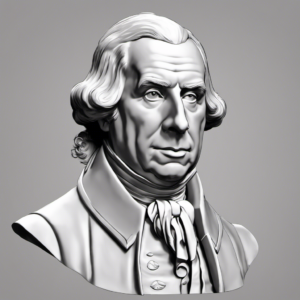
Vices of the Political System of the United States
by James Madison – 1787

“To the Honorable the Speaker and Members of the House of Delegates of the State of Virginia:
The Memorial and Remonstrance of James Madison, a citizen of the Commonwealth of Virginia.
Your Memorialist having resigned to the 1st General Assembly, in conformity to the resolution of the 21st of November, 1785, his seat in the House of Delegates, would not have trespassed on your patience with this address, but from the consideration that it was proper, in the first instance, to communicate his reasons to his Constituents. He beg[s] you, Gentlemen, at the same time, to be assured that the peculiar part which your goodness and partiality may have assigned him, in the past and present felicity of our common country, is gratefully remembered, and that his most zealous endeavors to promote the public good, which he is now to continue in a more private station, will never cease, nor, I trust, will his future services be totally useless.
The view of our public affairs at home and abroad, enables us, by the contemplation, to form an idea how rare and precious a jewel the lot of a free citizen of the Commonwealth of Virginia is; and how near it is to its period, if the influence of the United States, like a dark cloud, cannot be averted by a virtuous and vigorous reform in the great essentials of the State.
I shall beg leave to state to you, gentlemen, succinctly, my opinion respecting the vices of our political system, and the resources for curing them; conforming the detail to the terms of my commission.
It will be more candid, as well as more intelligible, to avail myself of the actual examples of abuses, than to abstract general propositions in place of them. The picture I shall give you, will serve as a comment on the principles, and a proof of the necessity of the amendments that are recommended.
To conciliate the proud and prejudiced temper of the world, to disarm the prejudices of our own fellow citizens, and to spare our own pride and sensibility, truths which the occasion shall call for shall be stated without exaggeration, without underrating the public embarrassments, or without affronting the pride and ignorance of individuals.
A correct statement of the real situation of the State, and of the predicament in which it stands with other States, can alone suggest the remedies which are proper; can alone justify the confidence of the public councils, and can alone conciliate that respect which is essential to order and subordination. This respect, which is due to a collective body of laws, and to a constitution which has procured so many blessings, can never be sufficiently great whilst we are subject to the peril of violating the latter by an inattention to the former.
The situation of the Virginia government with respect to the neighboring States, Maryland and Pennsylvania, and the universal disappointment at the noncompliance with the resolutions of Congress, laid the foundation of my solicitude on the subject of my commission. This conviction of our embarrassed condition suggested the object and the duty of my mission to Congress; which was confined, however, to an amendment of the 11th of the articles of Confederation, in which Congress had originated the dissatisfaction of these States. This, with the plan of a Navigation Act, were pursued until the last sessions of Congress, when the delegation from Virginia were authorized to meet the commissioners of the other States, in order to revise and digest the federal system.
From this view of our public affairs, and of the considerations which recommended it to my fellow citizens, it will not be supposed that my attention has been diverted from the general prosperity, or that my principles on government are accommodated to the local situation of any particular district. My zeal for the prosperity of my own State, and my affections for the Commonwealth, of which I am a citizen, are too strong to be influenced by local considerations. If I devote myself to the principles of good government, it is not with a view to the advantages or emoluments of any particular class or district, but with an ardor which they can seldom inspire, in order to promote the true interest of my country at large; and with a stronger disposition to conciliate, than to irritate the pride and prejudices of my fellow citizens.
In the pursuit of this temperate and upright course, it will be my constant endeavor to preserve the equilibrium which subsists between the different branches of government; and to reconcile that vigor in the executive, and those rights and privileges in the legislature, which are necessary to the public good, with the permanent security of the people, and the dignity of the Commonwealth.
With this view of my public object, and of the disposition by which it will be directed, I shall solicit your suffrages with that diffidence, and that distrust of myself, which have been ever felt by the truest friends of their country; and which has been so often justified by the errors of those who were more confident of their own qualifications.
That the Citizens of the Commonwealth may enjoy all the happiness which nature, and a free and wise government can bestow, is the first wish of my heart; and will be the constant object of my fervent prayers.
James Madison.
Comments